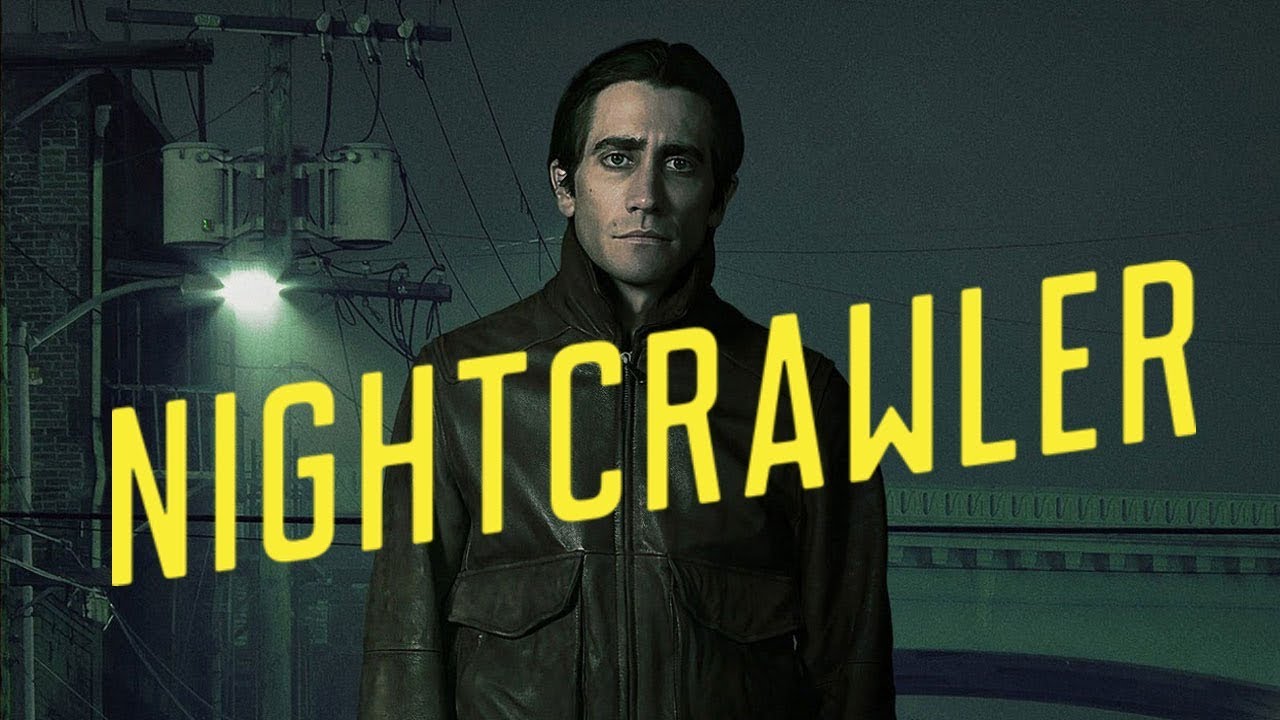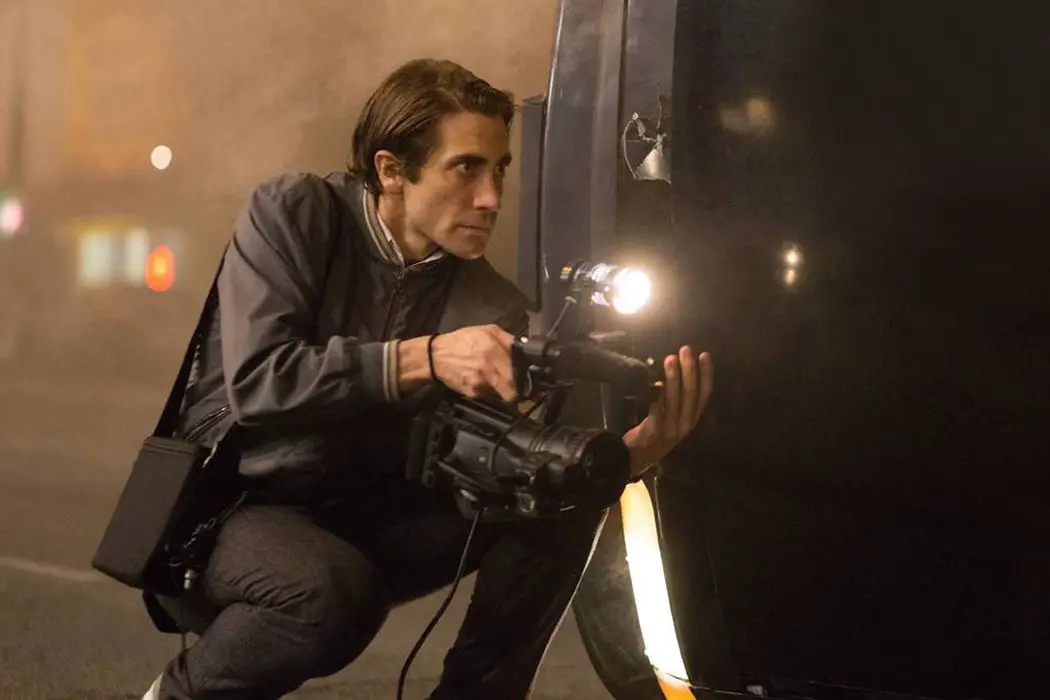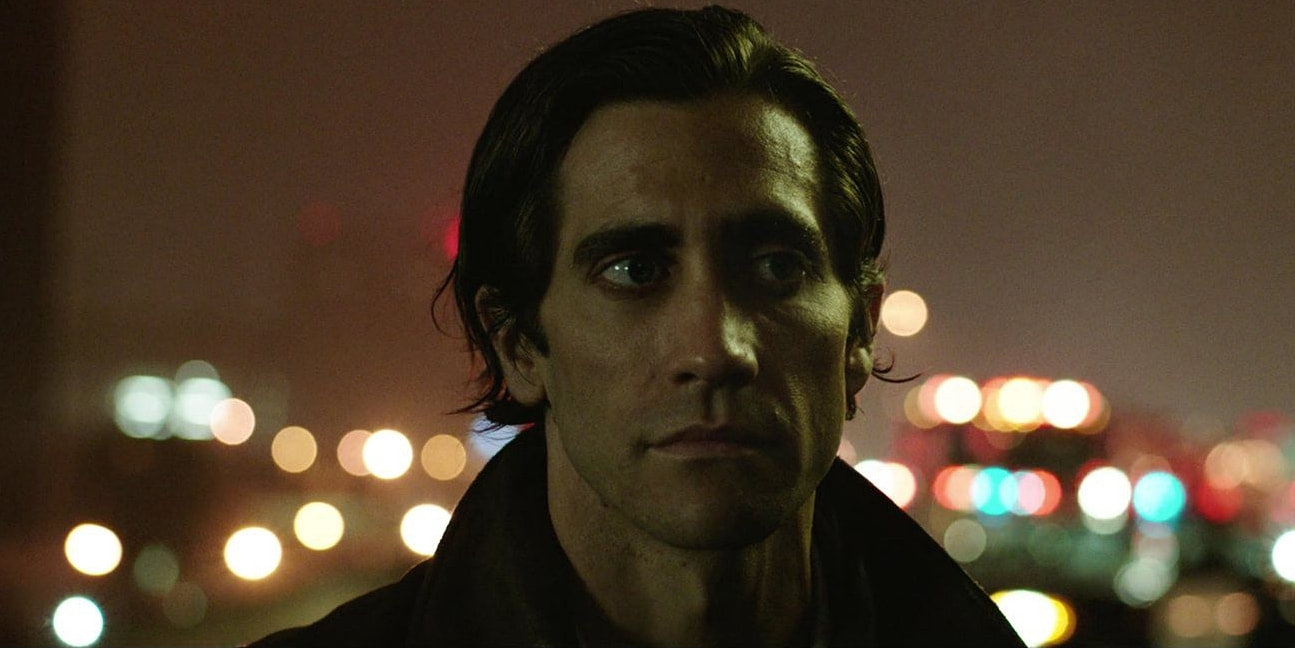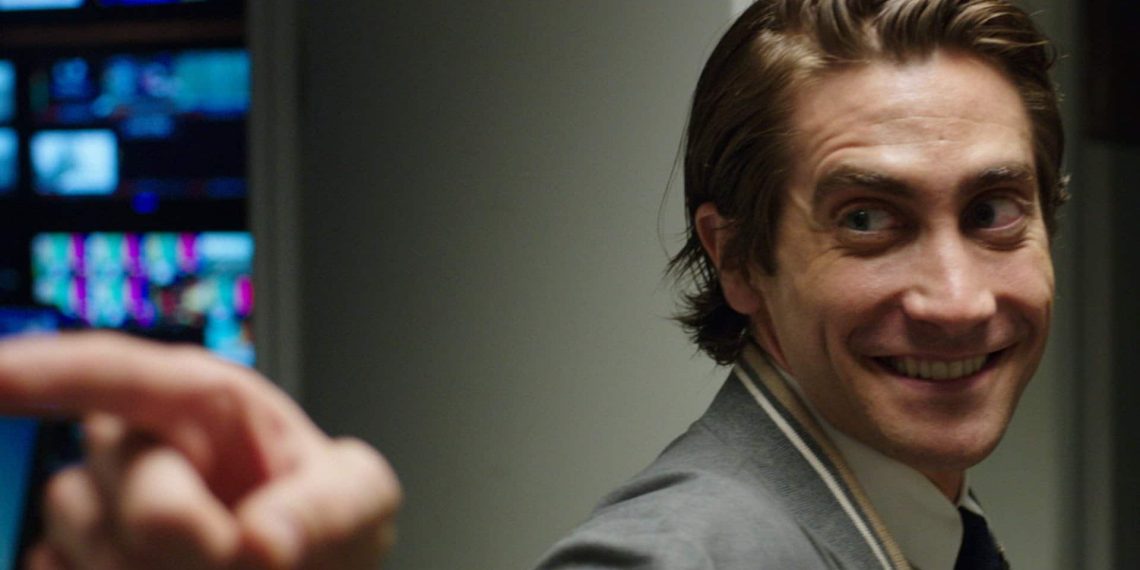Nightcrawler (2014), written and directed by Dan Gilroy, explores the morally questionable journey of Louis “Lou” Bloom (Jake Gyllenhaal), a man who rises through the ranks of crime and freelance journalism in Los Angeles. The film’s critical examination of capitalism, the media, and society culminates in a surprising yet inevitable ending. Let’s break down what Lou’s final scene means and the larger implications of the film’s message.
The story behind Nightcrawler’s creation dates back to 1988 when Gilroy first envisioned a film about criminal photojournalism. He was inspired by Arthur “Weegee” Fellig’s photo book, Naked City, which captured the grim, sensationalized side of urban life. However, as Gilroy moved to Los Angeles in the ’90s, his project evolved. It shifted toward a satirical thriller that critiqued local news stations, particularly their obsession with violent crime. By 2014, Gilroy brought his vision to life with Nightcrawler, starring Jake Gyllenhaal, Rene Russo, Riz Ahmed, and Bill Paxton.
Nightcrawler Ending Explained

In Nightcrawler, Lou Bloom is introduced as a small-time criminal in Los Angeles. He stumbles upon a horrific car accident one night, where he witnesses freelance cameramen, or stringers, recording footage to sell to news stations. Motivated by a mix of desperation and ambition, Lou decides to become a stringer himself. His persistence and ruthlessness soon allow him to strike a deal with Nina Romina (Russo), the morning news director at KWLA 6, for exclusive footage of violent incidents in affluent, mostly white areas of L.A.
Lou’s journey escalates as he hires Rick (Ahmed), a down-on-his-luck hustler, to assist him in his criminal endeavors. Lou grows increasingly unethical, tampering with crime scenes, withholding evidence from the police, and even sabotaging his competition. His actions become more extreme, from blackmailing Nina into a sexual relationship to orchestrating the downfall of fellow stringer Joe (Paxton), leading to Joe’s disabling crash, which Lou gleefully films for profit. Despite his abhorrent behavior, Lou’s career continues to soar.
Lou’s Victory in the Film’s Conclusion
Like many antiheroes, Lou starts the film as a fraud. He isn’t a legitimate photojournalist but a criminal who will do anything to climb the social ladder. Lou’s willingness to play the role of a respectable professional, despite being nothing of the sort, allows him to prosper. From acquiring a camera with stolen goods to manipulating Nina, Lou knows that appearances are all that matter. Critic Alyssa Rosenberg suggests that Lou’s sense of entitlement fuels his success, portraying the entitlement as a “superpower” that enables his rise.
By the end of the film, Lou’s performance is impeccable. He not only owns his own business, Video Production News, but he also delivers motivational speeches to interns, instilling in them the desire to achieve the same “respectability” that he has faked all along. Lou’s victory lies not in his moral integrity but in his ability to convince others that he is exactly what he claims to be. This marks his success in a system that rewards appearance over substance.
A Fan Theory: Is the Ending Real or a Fantasy?
There has been a long-standing fan theory suggesting that the final scenes of Nightcrawler are a figment of Lou’s imagination. Some point to the moment when Lou manipulates Rick into getting shot by a gunman they’ve been tracking. From this point on, everything seems to go perfectly for Lou: his rise in the media world accelerates, and KWLA 6 embraces him as a respected figure. This theory is rooted in comparisons to Taxi Driver (1976), another film that blurs the lines between reality and delusion.

However, this theory undermines Nightcrawler‘s core message. Unlike Taxi Driver, where the protagonist Travis Bickle is a tragic figure descending into madness, Lou is not a victim of his circumstances. He succeeds not despite his actions, but because of them. The film critiques the American Dream, illustrating how capitalism rewards those who manipulate and exploit others. No visual cues suggest that Lou’s victory is anything other than real. His success is a direct result of the system that enables such behavior.
Media’s Role in Nightcrawler’s Critique
Nightcrawler offers a damning critique of modern media, particularly the way sensationalized stories are manipulated for profit. The term “Fake News” may carry specific modern connotations, but the film offers an early critique of how news outlets prioritize stories based on their potential to attract viewers, not their societal importance. Gilroy explained in interviews that the film critiques not only the media but also the viewers who consume these stories. The system feeds off of our demand for stunning, sensational content, and the cycle continues.
Gilroy points out that this issue is not new. Movies like Network (1976) tackled the profit-driven nature of news years ago. However, Nightcrawler applies this criticism to the 21st-century media terrain, where sensationalism thrives in the pursuit of ratings, often ignoring the public’s true need for unbiased, responsible reporting.
Nina’s Role in Reflecting Class Issues
The character of Nina Romina also highlights the film’s commentary on class. As the news director at KWLA 6, Nina is acutely aware of how to manipulate stories to maximize their impact. When the news team uncovers details about the home invasion—namely, that the criminals were after stolen cocaine—Nina deliberately omits this fact from the broadcast. She understands that a story about wealthy victims is more palatable to her audience than one about criminals involved in drug trafficking. This decision emphasizes how the media shapes narratives to fit certain societal ideologies, particularly regarding class.

The True Meaning Behind Nightcrawler’s Ending
Ultimately, Nightcrawler is a film about power, capitalism, and the structures that sustain them. Lou Bloom’s victory at the film’s conclusion is not a happy ending but a chilling demonstration of how the system rewards those willing to do whatever it takes to succeed. Lou understands that the American Dream is built on a foundation of exploitation, privilege, and self-interest. He exploits these truths to climb the social ladder, demonstrating the system’s fundamental flaws.
In this way, Nightcrawler shares thematic similarities with films like Parasite (2019), which critiques capitalism from a different angle. While Parasite highlights the struggles of the working class, Nightcrawler focuses on how individuals like Lou manipulate the system to their advantage. Lou’s success is not an accident but a result of his complete understanding of the system’s mechanics. As he tells his interns, “I will never ask you to do anything that I wouldn’t do myself.” This chilling declaration serves as a reminder that Lou has fully embraced the exploitation at the core of his success.




